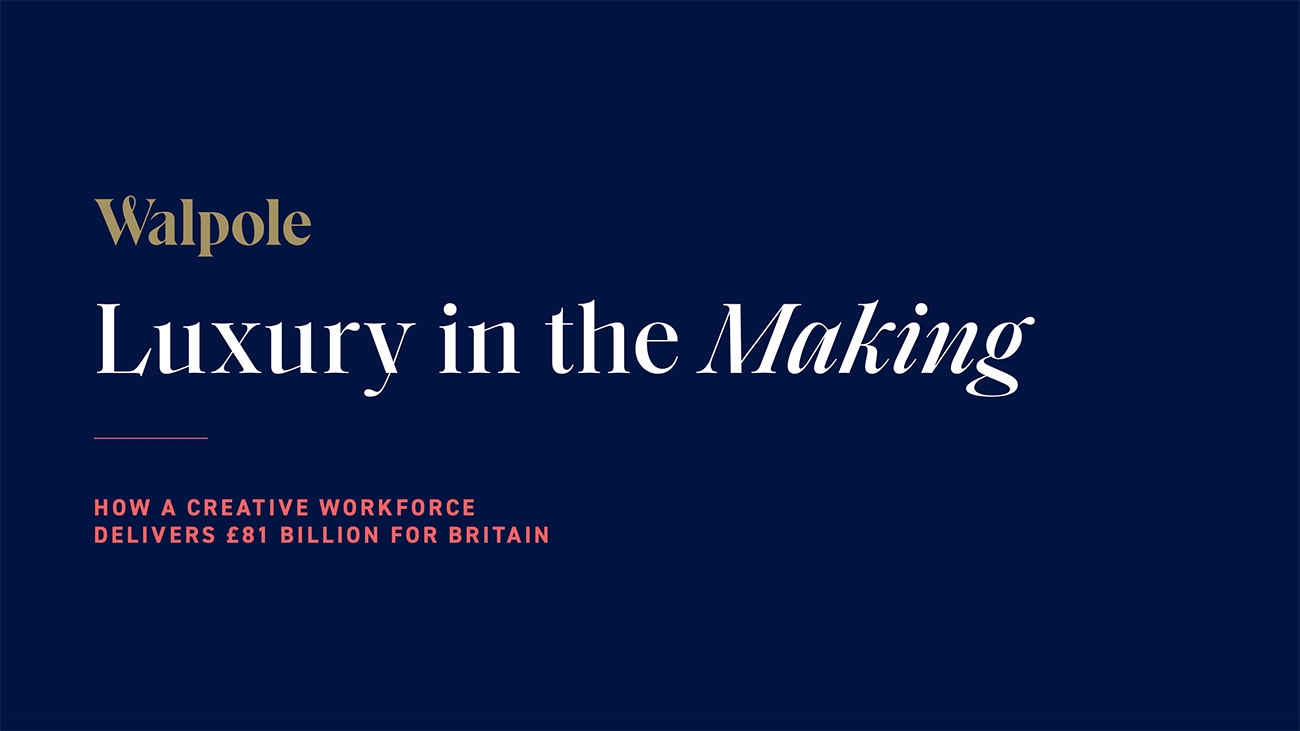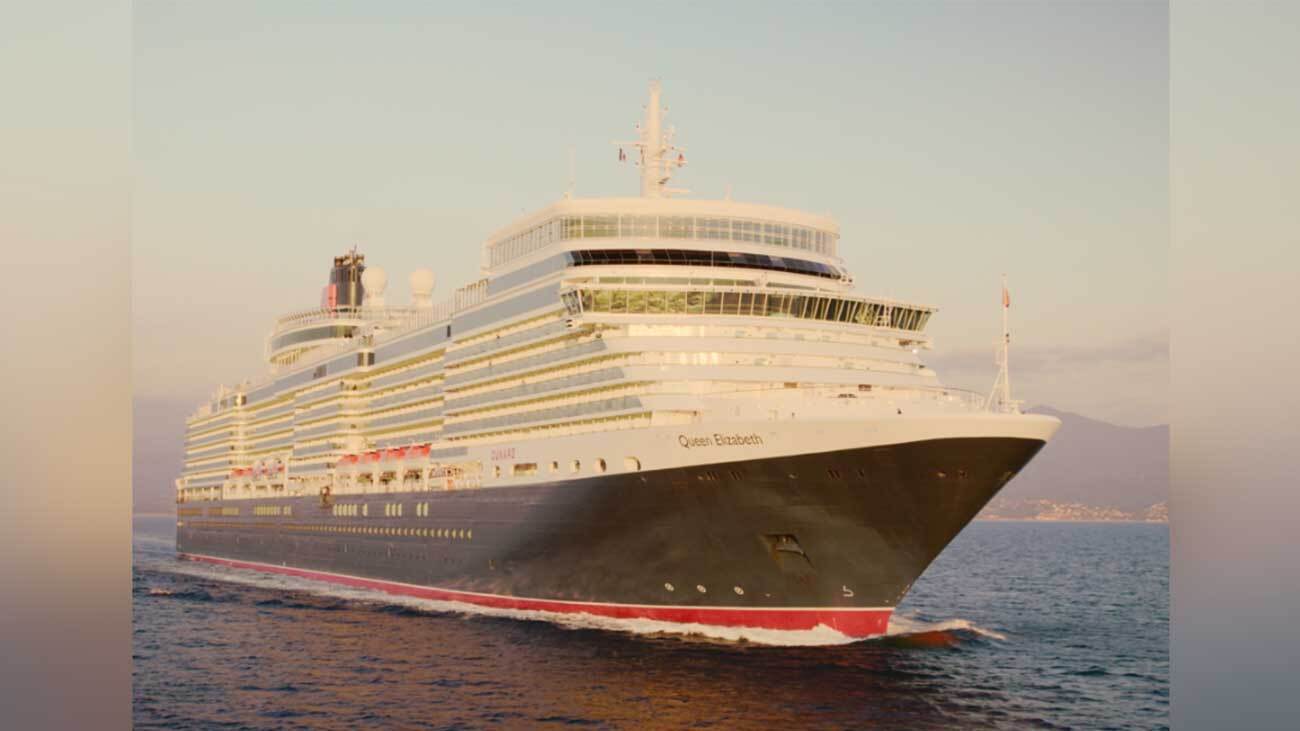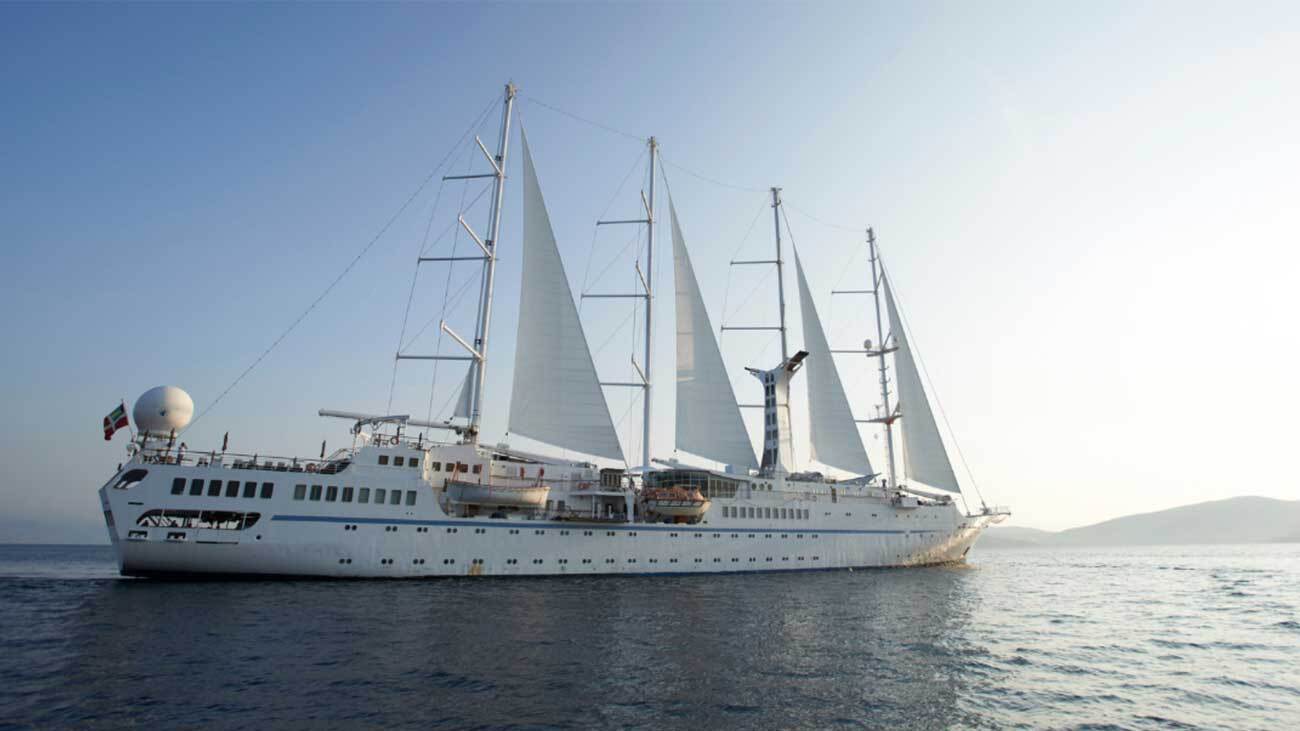UK luxury sector worth £81bn a year to economy
The UK’s luxury sector is now contributing £81 billion a year to the country’s economy and supporting 450,000 jobs, according to Walpole, the leading official sector body for British luxury.
The organisation’s landmark Luxury in the Making report, produced in association with Frontier Economics, found that the sector’s economic contribution – equivalent to 3.7% of GDP – has grown 69% over the last five years to 2022, despite a challenging macro environment including Brexit, the Covid-19 pandemic, supply chain issues and rising energy costs.
The UK luxury sector’s total exports stand at £56 billion – up 45% in five years – while the segment's contribution to the Exchequer’s tax receipts are now worth £25.5 billion, a figure the report claimed could “fund the development of 51 mid-sized hospitals or train 373,134 nurses for the National Health Service (NHS)”.
The UK’s high-end automotive sector, which includes brands like Aston Martin, Jaguar Land Rover, Rolls Royce and Bentley, was British luxury’s standout performer between 2017 and 2022.
Over the last five years, the sector achieved turnover totalling £32.9 billion - more than double the amount of the second-best performer, food and drink, which reported turnover of £12.02 billion.
Walpole forecasts that, by 2028, British luxury could be contributing £125 billion a year to the economy, meaning the sector would be generating more revenue that the life sciences and construction industries, which are currently worth £97 billion a year and £110 billion a year respectively.
But Walpole warned that without tax reform and changes to intellectual property laws, the sector’s “meteoric” growth could stall.
The organisation called for changes to be made to the UK’s Geographical Indicator (GI) regime - a set of intellectual property laws granted to produce-based products that have a specific link to the place where they are made, such as scotch whisky – claiming laws should be extended to include non-produce-based craft products, like Savile Row tailoring or Staffordshire pottery.
Walpole said such measures would provide protection to supply chains and communities, especially in areas like Stoke, where without a change in approach, the region’s pottery skills are in danger of being lost.
Policymakers must also shape a tax and regulatory system that supports high-quality employment, Walpole said.
The trade body warned that this month’s Spring Budget was a “missed opportunity” to reintroduce VAT-free shopping for international visitors.
Walpole’s chief executive Helen Brocklebank said: “We are delighted to publish our first study for five years, and the most comprehensive to date, demonstrating that the British luxury sector is valued at £81 billion and vital to the UK economy.
“We have quantified the significant high-quality employment offered by the sector throughout every region in the UK across hospitality, retail and manufacturing. The UK luxury industry deserves recognition and support to ensure our high-growth sector continues to flourish.”
Michael Ward, chairman at Walpole and managing director of Harrods, added: “British luxury has shown incredible resilience and strength over the past unprecedented few years. Since our last report, published in 2019, the sector has faced many challenges – namely the effects of Covid-19 lockdowns across the world, establishing new trading relationships with the EU, greater fragmentation in global trade, and the scrapping of the VAT Retail Export Scheme.
“Despite this, I am immensely proud Walpole, with this comprehensive report, has demonstrated how critical the UK’s luxury sector is to our economic and cultural life, and more than that, is one of the most vibrant and high-growth industries of the future.”









